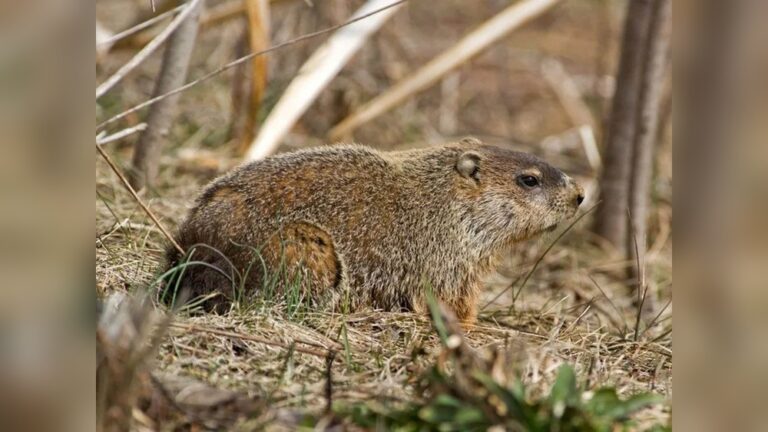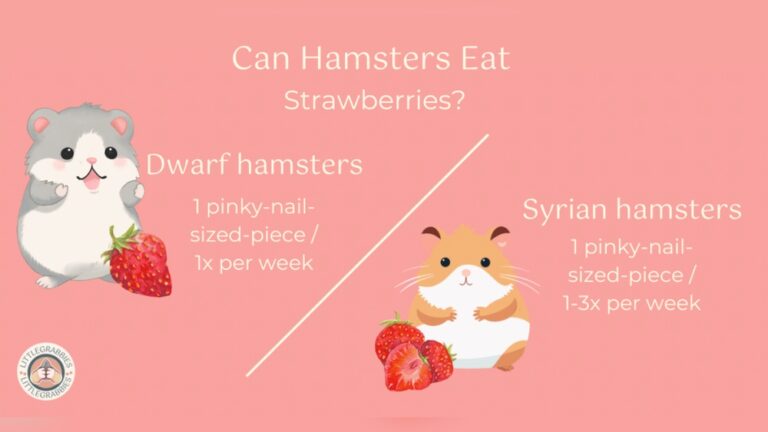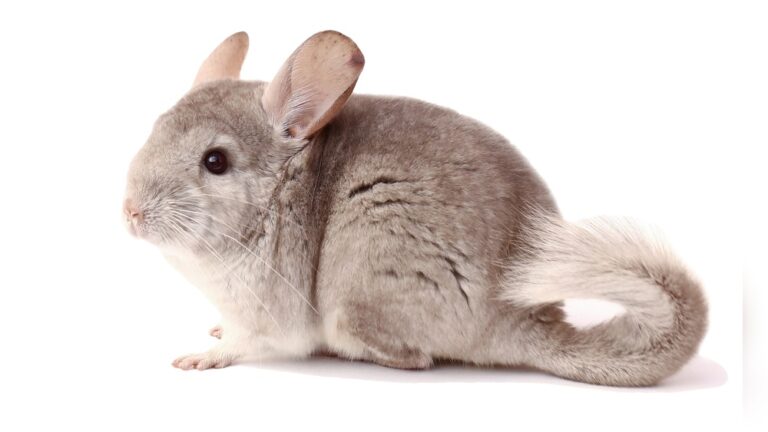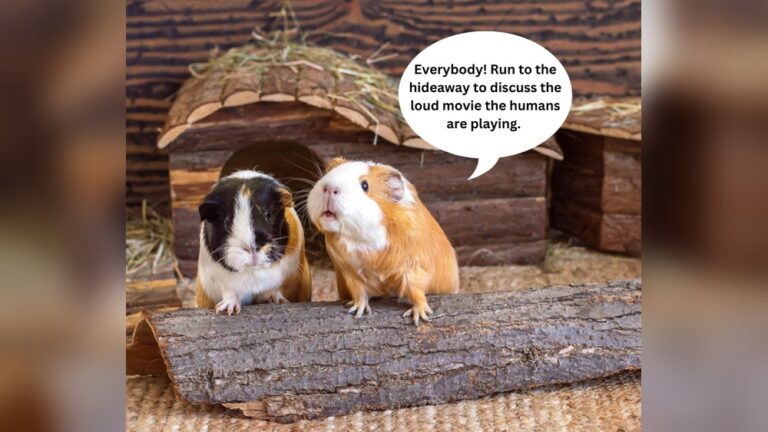Do Chinchillas Eat Their Babies? Shocking Truth Revealed!
Are you curious about chinchilla behavior and worried about something unusual happening with your pet? One question that often puzzles chinchilla owners is, “Do chinchillas eat their babies?”
It’s a shocking thought that might make you anxious if you’re caring for these delicate creatures. Understanding why this happens and what signs to watch for can help you keep your chinchillas safe and happy. Keep reading to uncover the truth behind this behavior and learn how you can protect your furry friends.
Chinchilla Maternal Behavior
Chinchilla mothers have unique ways of caring for their babies. These patterns help ensure the babies grow healthy and safe. Understanding these behaviors clears up many myths about chinchillas and their babies.
Chinchilla moms are gentle but protective. Their actions show how they balance care and caution in raising their young.
Typical Mothering Patterns
Chinchilla mothers usually keep their babies close. They clean and groom each pup regularly. This keeps the babies warm and healthy. The mother feeds them often during the first few weeks. She also stays alert to protect them from danger. These habits show strong maternal instincts.
Nurturing Vs. Neglect
Most chinchilla mothers are nurturing and attentive. They respond quickly to their babies’ needs. Some may seem distant or less caring at times. This can happen if the mother is stressed or sick. Neglect is rare but possible under poor conditions. Proper care and environment help moms stay nurturing. Understanding this helps owners support healthy mothering.

Credit: chinchillacare.org
Instances Of Cannibalism
Chinchillas sometimes eat their babies. This behavior shocks many pet owners. It is rare but important to understand. Cannibalism among chinchillas can happen under certain conditions. Knowing why helps prevent this tragic event.
Not all chinchillas show this behavior. It depends on the situation and the individual animal. Observing your pet closely can help you spot early signs.
Reasons Behind Eating Offspring
Eating babies can be a survival tactic. Mother chinchillas might do this if the baby is weak or sick. This helps protect the rest of the litter. Sometimes, the mother may feel she cannot care for all babies. In such cases, she might reduce the number to increase chances of survival.
Another reason is confusion or stress. A mother under pressure may act unpredictably. Lack of experience can also cause this behavior. First-time mothers might not know how to care for their young properly.
Stress And Environmental Factors
Stress plays a big role in this behavior. Loud noises, sudden changes, or overcrowding can upset chinchillas. A stressed mother might harm her babies. Poor cage conditions also increase stress levels. Dirty cages or lack of hiding spots make chinchillas uneasy.
Proper care and a calm environment reduce risks. Giving mother chinchillas space and quiet helps them feel safe. Regular cleaning and good nutrition support healthy babies and moms. Minimizing stress is key to preventing cannibalism in chinchillas.
Preventing Cannibalism
Chinchilla mothers may sometimes eat their babies, but this behavior is rare. Preventing cannibalism starts with understanding the causes. Stress, poor habitat, and bad nutrition often trigger this. Creating a calm and safe environment helps reduce risks. Giving the mother the right food supports her health and the babies’.
Creating A Safe Habitat
Chinchillas need a quiet and secure place to raise their young. Avoid loud noises and sudden movements near the cage. Use soft bedding that keeps babies warm and comfortable. Make sure the cage is large enough for the mother to move freely. Clean the cage regularly to prevent illness and stress.
Proper Nutrition For Mothers
A healthy diet is key to stopping cannibalism. Feed the mother high-quality hay and pellets made for chinchillas. Add fresh water daily to keep her hydrated. Include small amounts of safe treats like raisins or oats. Avoid sugary or fatty foods that can harm her health. Proper nutrition helps the mother stay strong and care for her babies well.
Signs Of Trouble In Chinchilla Litters
Signs of trouble in chinchilla litters can help you protect the babies early. Watching the mother and her babies closely is very important. Problems may start small but grow fast. Spotting these signs can save lives and keep your pets healthy.
Chinchilla moms usually care well for their babies. But stress, illness, or poor environment might cause issues. Knowing what to watch for helps you act quickly and prevent harm.
Behavioral Red Flags
Unusual mother behavior may mean trouble. A mom ignoring or biting her babies needs attention. Excessive restlessness or aggression can signal stress or pain. Babies that cry often or hide may be weak or sick. Watch if the mother refuses to feed her litter. Such signs require immediate care and observation.
Health Concerns
Sick or weak babies show clear warning signs. Look for limpness, pale skin, or slow movement. Breathing problems or lack of appetite are serious issues. Dehydration and coldness can cause quick health decline. Mothers with illness may pass problems to their young. Early veterinary help is crucial for survival and recovery.
Expert Tips For New Breeders
Breeding chinchillas is exciting but requires careful attention. New breeders must understand how to care for newborns and avoid common problems. Expert advice helps keep babies safe and healthy. Following simple steps ensures a smooth start for both mother and pups.
Handling Newborns Safely
Always wash your hands before touching newborn chinchillas. Their immune systems are very weak at first. Handle them gently and only when necessary. Avoid loud noises or sudden movements near the mother. Keep the environment warm and quiet. Use soft bedding to prevent injuries. Never separate babies from their mother too soon. Stress can cause the mother to harm her young.
When To Seek Veterinary Help
Watch for signs of illness or injury in babies. Look for weakness, loss of appetite, or difficulty breathing. If the mother shows signs of aggression or neglect, get help quickly. Consult a vet if babies seem cold or unresponsive. Early treatment can save lives. Regular check-ups ensure babies grow strong and healthy.
:strip_icc()/chinchillaPatcharinChatchirdchaikulEyeEm-5c3b720bc9e77c0001c06e98.jpg)
Credit: www.thesprucepets.com

Credit: www.youtube.com
How Smart Pets Lover Can Help You with Do Chinchillas Eat Their Babies
Learning from Chinchilla Maternal Behavior and Preventing Cannibalism
Understanding whether chinchillas eat their babies can feel overwhelming, especially for new breeders. It’s important to remember that maternal behavior varies widely, and instances of cannibalism, while rare, usually signal stress or health issues. Observing signs of trouble in chinchilla litters—such as neglect or sudden loss—offers practical learning moments to improve care and environment.
At Smart Pets Lover, we believe that every pet parent deserves to feel confident and connected with their animals. By paying close attention to these behaviors and applying expert tips for new breeders, you can create a nurturing space that supports both mother and babies. If you notice concerning patterns, reaching out to experienced vets or local chinchilla communities can provide valuable insights without judgment.
Remember, patience and informed care make all the difference. For additional guidance or questions, you’re always welcome to contact trusted pet care resources—because where every wag, purr, and chirp tells a story, every tiny chinchilla life matters too.
Frequently Asked Questions
Do Chinchillas Eat Their Babies Often?
Chinchillas rarely eat their babies. It may happen due to stress, illness, or lack of resources. Proper care minimizes this risk.
Why Might A Chinchilla Eat Its Young?
A chinchilla may eat its babies if it feels threatened or stressed. Poor environment or health issues can trigger this behavior.
How To Prevent Chinchillas From Eating Their Babies?
Provide a calm, safe environment and balanced diet. Avoid disturbances and monitor health closely to reduce cannibalism risk.
Is Cannibalism Common In Pet Chinchillas?
Cannibalism in pet chinchillas is uncommon with good care. Stress and poor conditions increase the chances significantly.
Conclusion
Chinchillas rarely eat their babies. This behavior is very uncommon and usually happens only under stress. Most chinchilla mothers care well for their young. Proper care and a calm environment help keep babies safe. Watching your chinchilla closely after birth is important.
Healthy moms and babies mean less worry for you. Understanding chinchilla habits helps you provide better care. Keep their living space quiet and clean. Happy chinchillas raise healthy babies. Your attention makes all the difference.






